On November 27, in order to further promote the medical exchanges and communication of Southeast Asian countries along the Belt and Road, seek common development and progress in the medical industry, and benefit more cancer patients. The delegation of Vietnamese experts was invited to visit St. Stamford Modern Cancer Hospital Guangzhou (Guangdong), the Belt and Road Integrated Oncology Medical Training Base of the China Anti-Cancer Association for exchange , Wang Huaizhong, President of the Hospital, Yang Jinna, Director of the Hospital Office, He Langbing, Director of the International Affairs Department, Wang Junlan, Director of the Nursing Department, and other hospital leaders warmly welcomed the arrival of the delegation.
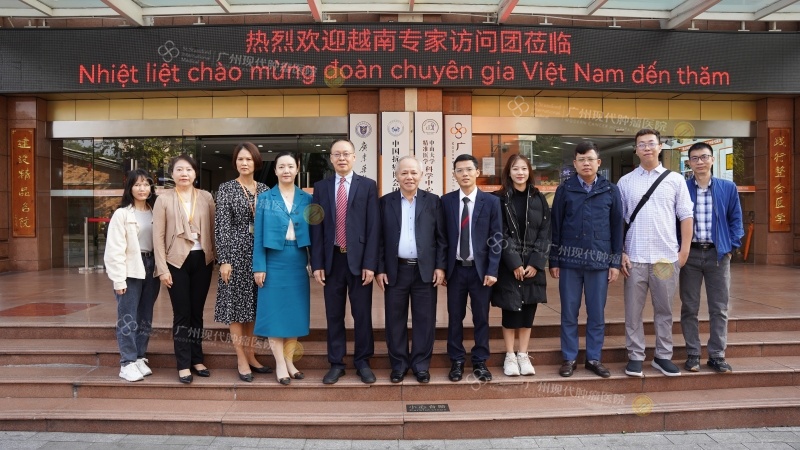
【Group photo of leaders of St. Stamford Modern Cancer Hospital Guangzhou and others with the delegation of Vietnamese experts】
President Wang Huaizhong delivered a welcome speech: First of all, he extended a warm welcome to the visiting delegation, and briefly introduced the medical advantages of the hospital, the strength of the hospital as a Belt and Road Integrated Oncology Training Base, and the future imagination of exchanges and cooperation between the two sides. It’s hoped that through mutual learning, adhere to complementary advantages, and ultimately achieve the goal of mutually beneficial cooperation, at the starting point of the Belt and Road, promote the common progress of medical care of both sides. Through the promotion and popularization of the Chinese Guidelines for Integrated Diagnosis and Treatment of Oncology (CACA), we will bring cutting-edge cancer technologies and treatment concepts to Vietnam, so that new technologies and concepts can benefit more people.
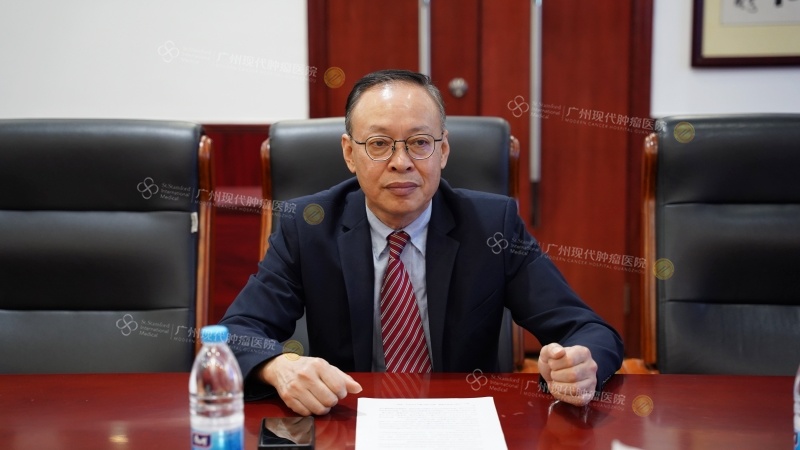
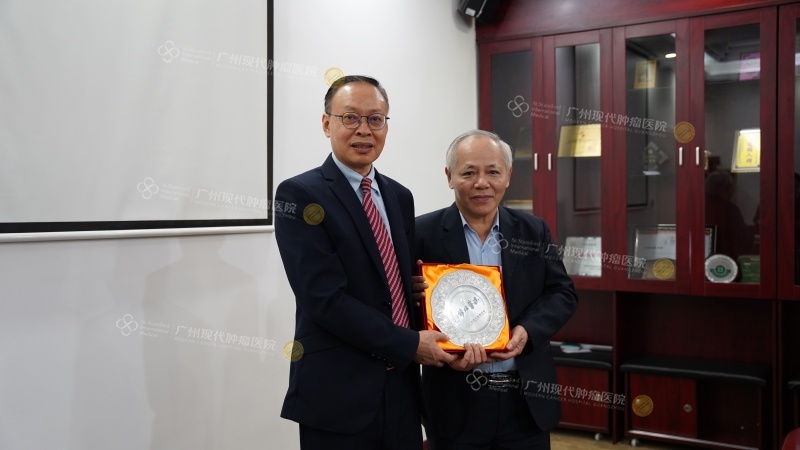
Learning from each other's strengths and making progress together
The delegation of Vietnamese experts visited the basic departments, International cancer ward, VIP ward, information system, remote consultation center, etc. of St. Stamford Modern Cancer Hospital Guangzhou.The delegation observed minimally invasive surgeries and interventional surgeries on site, and gained an in-depth understanding of the hospital's infrastructure, cultural construction, and technical advantages.
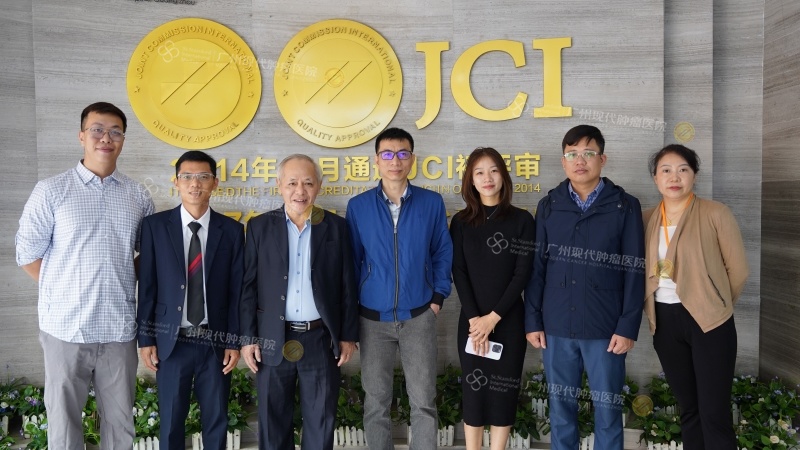
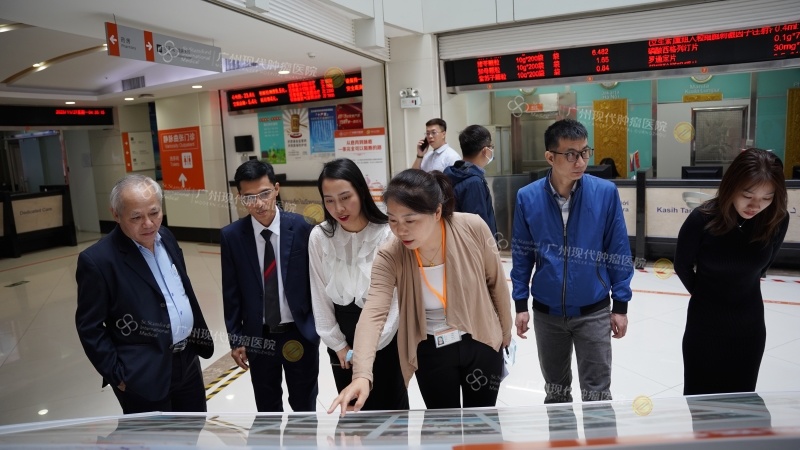
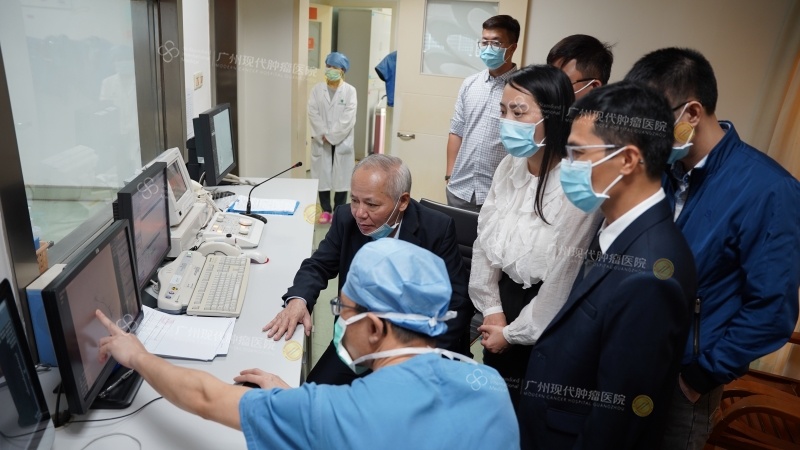
Later, oncologists from St. Stamford Modern Cancer Hospital Guangzhou held an academic discussion with Vietnamese experts.
Professor Song Shijun, chief expert of the hospital, introduced the composition and advantages of the MDT team of Modern Cancer Hospital, and the experts from both sides exchanged views on the current cancer diagnosis model.
"MDT is an interdisciplinary and multi-professional diagnosis and treatment model that integrates expert resources from various fields to provide patients with comprehensive and multi-perspective treatment recommendations. This model can avoid the limitations of a single field and improve the accuracy and effectiveness of diagnosis and treatment. Provide a more comprehensive and personalized treatment plan for cancer patients. At the same time, our hospital has set up an MDT remote consultation expert group to achieve international and localized consultation by connecting experts from all over the world. We sincerely hope to work with Vietnamese experts to establish a remote consultation team of the hospital's Vietnam group MDT to work together to develop a more suitable diagnosis and treatment plan for Vietnamese patients. ”
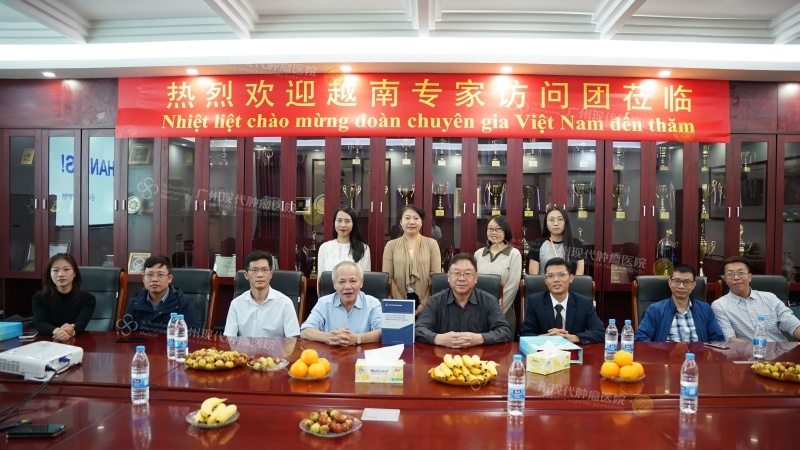
【Group photo for Professor Song Shijun and Vietnamese experts】
Minimally Invasive Tumor Technology Benefits Patients around the World
Professor Peng Xiaochi, an international oncologist, shared the Optimization of Cancer Treatment, introduced 18 internationally minimally invasive techniques of the hospital, explained in details the cutting-edge cancer minimally invasive technologies such as Interventional Therapy, Combine knife, and Drug-eluting Beads, and vividly interpreted them in combination with cases.
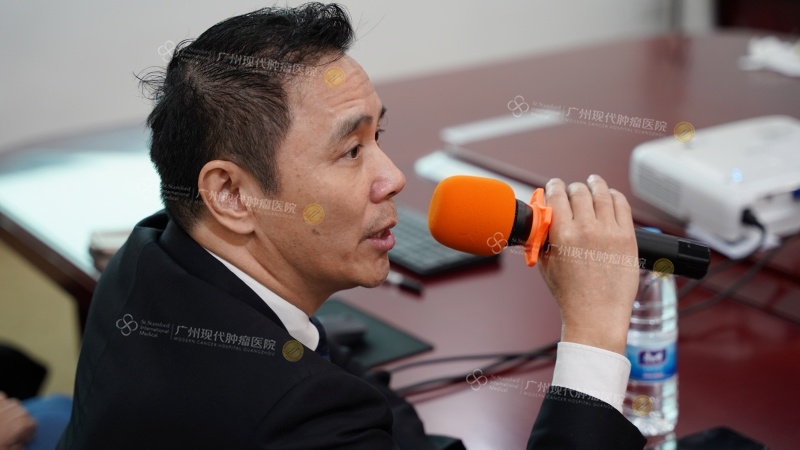
【Professor Peng Xiaochi, Chief International Oncologist】
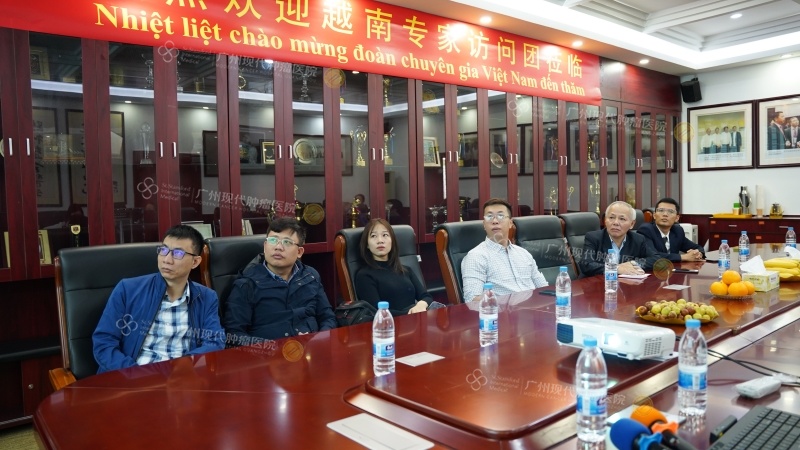
【The Vietnamese delegation of experts listened attentively】
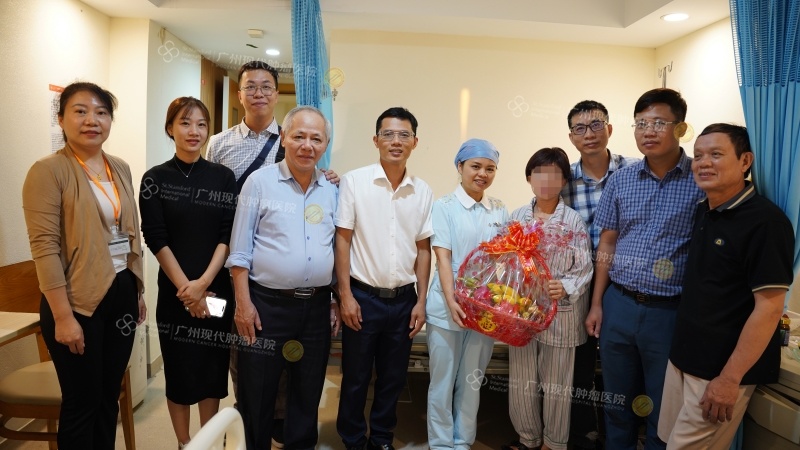
【The Vietnamese expert delegation visits patients in hospital】
*Surgery, in addition to the appropriate chemotherapy and radiotherapy, are effective in treating early cancer, but certain patients in late stage of cancer may not be tolerate surgery well as they can be relatively weak. A combination of carefully planned minimally invasive therapy, chemotherapy or radiotherapy can effectively reduce the side effects and discomfort of treatment and may help patient get better efficacy.













 viber
viber